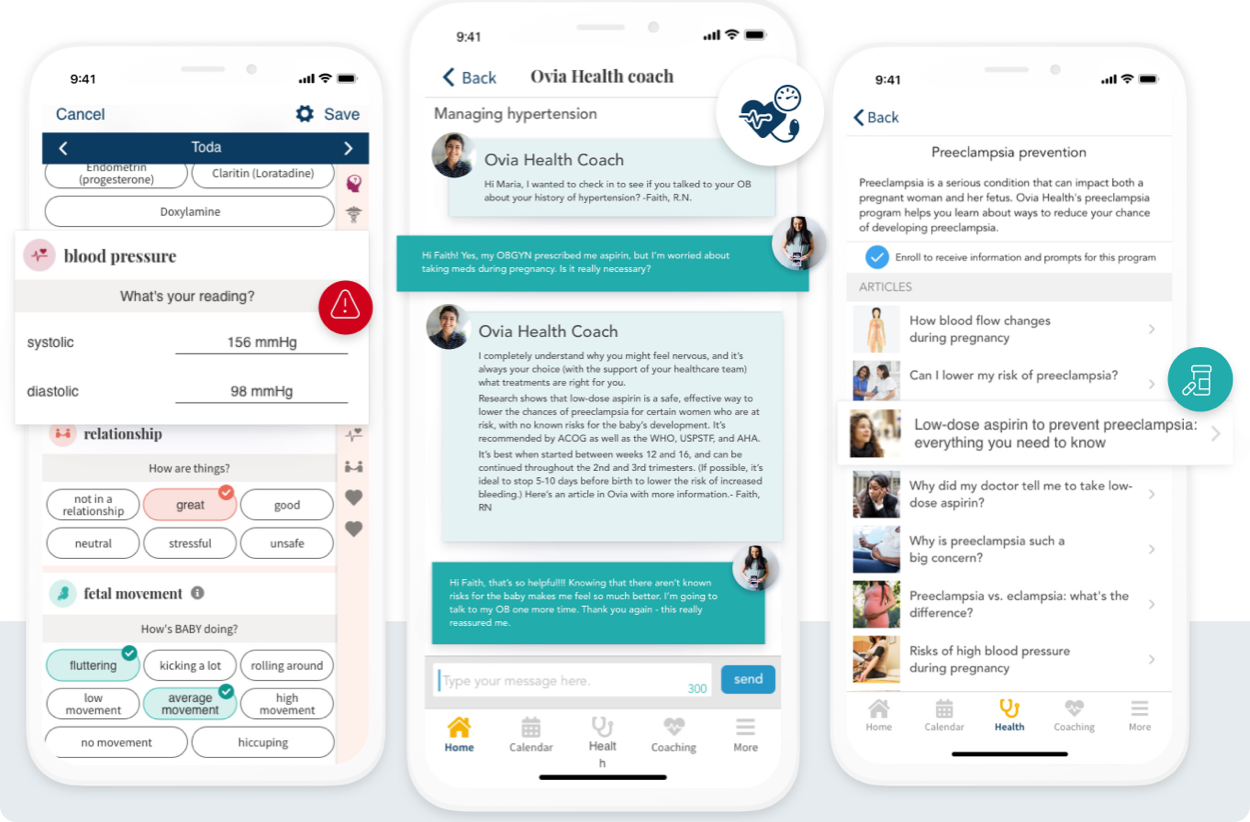- Patients Patients
Reproductive Genetics Testing
Patient Resources
Cost & Billing
- Providers Providers
- Genetic Counseling
- Login Login
- Estimate My Cost

Week 1 to end of week 13
Testing during
the first trimester
Getting early and regular prenatal care improves the chances of a healthy pregnancy.

First trimester routine prenatal tests
Blood and urine samples will be needed for a standard group of tests for your first doctor’s appointment. Your blood can be collected in your doctor’s office or at a Labcorp patient service center. Our “Wait Where You’re Comfortable” Program allows patients to check in virtually and wait safely in their car or elsewhere nearby, and when they are next in line to be drawn they are texted or called. Samples will also be collected on later visits for testing as part of routine prenatal care.
- Complete Blood Count (CBC)
- ABO grouping & Rh typing (blood type)
- Antibody screen
- Hemoglobin electrophoresis
- Hepatitis B virus
- HIV
- Rubella titer (German measles)
- Syphilis
- Tuberculosis (TB)*
- Urine culture (tests urine for bacteria)
- Urinalysis
- Chlamydia*
- Gonorrhea*
- Cervical cancer screening*
- Urine drug screen*
- Hepatitis C virus*
- Cytomegalovirus (CMV)*
- Parvovirus B19*
- Varicella zoster virus* (chicken pox)
- Prenatal cfDNA Screening
*Additional testing may be requested based on your background and risk for problems, with consent and in accordance with law.
Screening for Preeclampsia During the First Trimester
Did you know 1 in 25 pregnancies in the U.S. are affected by preeclampsia?1 Preeclampsia symptoms are similar to common pregnancy-related symptoms, potentially delaying diagnosis and treatment. Most people will deliver healthy babies and recover without experiencing serious complications during pregnancy. However, it’s still important to recognize the symptoms and risk factors of preeclampsia, the leading cause of maternal and infant illness and death.
Healthcare providers may monitor for signs and symptoms of preeclampsia, such as:
- High blood pressure: This is a key indicator of preeclampsia
- Proteinuria: The presence of protein in the urine
- Swelling: Edema, especially in the hands, feet, and face
- Severe headaches: Persistent or sudden, severe headaches
- Vision changes: Blurred vision or spots in vision
- Abdominal pain: Especially in the upper right abdomen
Regular prenatal check-ups, including blood pressure measurements and urine tests, are crucial for early detection of preeclampsia. Early diagnosis and treatment are essential to prevent serious complications for both the mother and baby. Consult with your healthcare provider to discuss early screening options for preeclampsia.
It's important to note that preeclampsia can develop rapidly, so it's crucial to attend all prenatal appointments and report any concerning symptoms to your healthcare provider immediately.

First Trimester Preeclampsia Test
Using a blood sample drawn between weeks 11.0 and 14.0 of your pregnancy, this test assesses your potential risk for developing preeclampsia later in your pregnancy (before 34 weeks).
Genetic Screening
Talk to your healthcare professional about the benefits of genetic screening, which can provide important information on the health of your baby. Whether this is your first pregnancy or you are adding to your family, genetic screening can provide insights to help you better understand your health, and that of your future family.

Screening for you and your partner
Carrier Screening
Most babies are born healthy. However everyone has genetic variants which can be passed on to the baby. Carrier screening can help determine if your child is at risk for specific disorders such as cystic fibrosis. Carrier screening is usually performed on you first. If your test is positive, additional testing could be offered, either for your partner, your pregnancy or both.

Screening for your baby
Prenatal cfDNA (NIPT) screening
With a simple routine blood draw early in your pregnancy, prenatal cfDNA (NIPT) screening will determine if your baby is at increased risk for specific conditions including Down syndrome, which could affect your baby's health and development.

Screening for your baby
Maternal Serum Screening (part 1)
Maternal serum screening helps determine if your child is at risk for specific disorders. Your provider may order from an assortment for tests in your first-trimester screen, sometimes combining with testing in the second trimester.

genetic counseling
Genetics is complicated. Navigating the world of genetics doesn’t have to be.
Genetic information and knowledge is changing rapidly, and understanding your genetic screening choices can be complicated, so it is important to have a trusted source for gaining answers to your questions.
Our board-certified genetic counselors work with you and your doctor to help you understand your genetic risks and screening options. You may talk with a genetic counselor when you are considering genetic screening, or to discuss your genetic screening results.
OVIA® health APP
Ovia is your companion for the journey ahead.
Download Ovia® Health to track your weekly milestones, and access a library of pregnancy features and tools.

References
- Centers for Disease Control and Prevention. High Blood Pressure During Pregnancy. Updated June 6, 2024. Accessed June 10, 2024. https://www.cdc.gov/high-blood-pressure/about/high-blood-pressure-during-pregnancy.html


